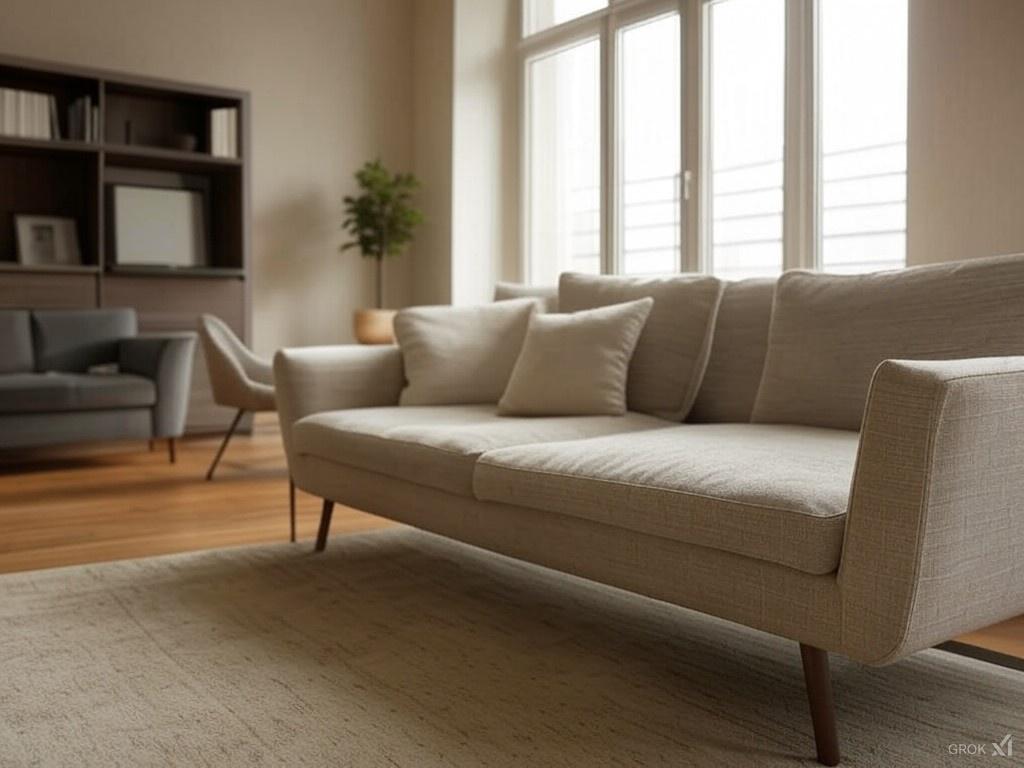
In today’s fast-paced, consumer-driven world, many of us find ourselves overwhelmed by the sheer volume of possessions, tasks, and distractions that fill our lives. The concept of minimalist living has emerged as a powerful remedy for this chaos, offering a path toward a simpler, more intentional life. By embracing minimalism, you can experience reduced stress, increased clarity, and a greater focus on what truly matters—your relationships, your health, and your personal growth. In this blog, we will explore practical guides for decluttering, simplifying your life, and experiencing the many benefits of minimalism.
What is Minimalism?
Minimalism is more than just a lifestyle choice; it’s a mindset that encourages you to eliminate excess in every aspect of your life. While it is often associated with decluttering physical spaces, minimalism goes beyond that. It’s about simplifying your environment, schedule, and mental load to create more room for what truly matters.
In a minimalist lifestyle, you focus on the essentials and prioritize the things that bring you joy, purpose, and value. Minimalism can apply to your home, wardrobe, digital life, and even your daily routines. It’s about making intentional choices to remove distractions and unimportant clutter, both mentally and physically.
The Benefits of Minimalist Living
Minimalist living has a wealth of benefits, both tangible and intangible. By simplifying your life, you can experience greater well-being, reduced stress, and improved productivity. Here are some key benefits of embracing minimalism:
- Increased Focus and Productivity
When you remove distractions from your environment and routine, you create space for focus and clarity. Minimalism allows you to hone in on the tasks and goals that matter most, leading to improved productivity and efficiency. - Reduced Stress and Anxiety
Cluttered spaces and schedules can be overwhelming and contribute to stress. Minimalism helps reduce mental and physical clutter, leading to a calmer, more peaceful environment. You’ll find it easier to relax and focus on what’s important. - Financial Benefits
Adopting a minimalist lifestyle encourages thoughtful spending and mindful consumption. By reducing unnecessary purchases and prioritizing quality over quantity, you can save money and make better financial decisions. - More Time for What Truly Matters
Minimalism helps you focus on your values, relationships, and personal growth. With fewer distractions and commitments, you’ll have more time for activities that enrich your life, such as spending time with family, pursuing hobbies, and taking care of your health.
Decluttering Your Space: Step-by-Step Guide
Decluttering is one of the foundational practices of minimalism. A decluttered space can improve your mental clarity and help you feel more organized and in control. Here’s a step-by-step guide to help you start decluttering your home:
- Start Small
Don’t try to declutter your entire home in one go. Begin with one room or area at a time. For instance, start with your closet, kitchen, or desk. Focusing on a small area helps prevent overwhelm and gives you a clear sense of progress. - Sort and Categorize
Take everything out of the space you’re decluttering and sort your items into categories: keep, donate, and discard. Be honest with yourself about what you truly need or love. Ask yourself if the item adds value to your life or simply takes up space. - Create a System for Organization
Once you’ve decluttered, create an organizational system that suits your needs. Use storage containers, shelves, or drawers to keep your items neatly arranged. A minimalist home is both decluttered and organized. - Be Mindful of Future Purchases
After decluttering, make a conscious effort to only bring in items that add value to your life. Adopt the mindset of “one in, one out” to prevent unnecessary clutter from accumulating again.
Simplifying Your Daily Routine
Minimalism isn’t just about physical clutter; it also applies to your daily routine. Simplifying your schedule and tasks can help you lead a more intentional life. Here are some strategies for simplifying your daily routine:
- Prioritize What Matters
Take time to reflect on your values and goals. Prioritize activities that align with those values. This may involve saying no to commitments that don’t serve your overall well-being, such as unnecessary meetings or events. - Time Blocking
Time blocking is a technique where you allocate specific blocks of time for focused work, breaks, and personal activities. This helps you stay organized and focused throughout the day, preventing distractions and multitasking. - Automate and Delegate
Automate repetitive tasks like bill payments or grocery shopping. If possible, delegate tasks that aren’t your responsibility or don’t bring you joy. This frees up your time for more important pursuits. - Simplify Your Goals
Instead of overwhelming yourself with long lists of tasks, simplify your goals into smaller, achievable steps. Focus on one or two major goals at a time, and break them down into manageable tasks.
Minimalist Wardrobe: Building a Capsule Closet
A minimalist wardrobe is a key component of minimalist living. A capsule wardrobe consists of a small collection of versatile, high-quality clothing that can be mixed and matched to create different outfits. Here’s how to build your own capsule wardrobe:
- Assess Your Current Wardrobe
Take a close look at your closet and evaluate which items you wear regularly and which ones you rarely use. Donate or discard clothes that no longer fit, are outdated, or you haven’t worn in the past year. - Select Versatile Pieces
Choose clothing items that can be worn in multiple ways and for different occasions. Stick to a neutral color palette to make it easier to mix and match. Invest in quality pieces that will last longer and serve you well. - Focus on Functionality
Make sure each item in your capsule wardrobe serves a practical purpose. Opt for clothing that fits well, is comfortable, and suits your lifestyle. Avoid trendy items that will quickly go out of style. - Regularly Assess Your Wardrobe
A minimalist wardrobe is not static. Regularly assess your closet and remove items that no longer serve you. This helps ensure that your wardrobe remains functional and clutter-free.
Minimalism and Technology: Simplifying Digital Life
In the digital age, technology can become a significant source of clutter and overwhelm. From countless emails to overflowing apps, managing your digital life is essential for embracing minimalism. Here are some tips for simplifying your digital space:
- Organize Your Devices
Clean up your devices by organizing apps, files, and folders. Delete apps you no longer use and archive files that aren’t immediately needed. A clutter-free digital workspace leads to a more organized and productive day. - Unsubscribe from Unwanted Emails
Unsubscribe from email lists that no longer interest you. Use email filters and folders to sort your messages efficiently. Consider setting up specific times to check and respond to emails to prevent constant distractions. - Reduce Screen Time
Set limits on social media usage and screen time. Spend more time engaging in offline activities like reading, exercising, or spending time with loved ones. Reducing digital distractions helps you stay present in the moment. - Use Digital Tools Mindfully
Choose digital tools and apps that align with your values and goals. Avoid downloading unnecessary apps or using technology that adds little value to your life. Use productivity apps to stay focused and organized, and declutter your devices regularly.
Mindfulness and Minimalism
Minimalism and mindfulness go hand in hand. Mindfulness is the practice of being present and fully engaged in the moment. By adopting mindfulness techniques, you can further simplify your life and enhance your minimalist journey.
- Practice Meditation
Meditation helps clear mental clutter and promote inner peace. By practicing mindfulness meditation regularly, you can reduce stress, improve focus, and foster a greater sense of clarity in your life. - Live with Intent
Minimalism is about living with intention. Be mindful of the choices you make, from what you buy to how you spend your time. Mindful decision-making ensures that you prioritize what truly matters and align your actions with your values. - Let Go of Attachment
Minimalism encourages detachment from material possessions. While it’s important to appreciate the things you own, it’s equally essential to let go of the attachment to them. Focus on experiences and relationships that bring meaning to your life.
Minimalist Living in Practice: Real-Life Examples
Minimalism isn’t a one-size-fits-all solution; it’s a personal journey that looks different for everyone. Here are a few real-life examples of how minimalism can transform various aspects of life:
- Simplified Finances
Many people who adopt minimalism find that they save money by avoiding unnecessary purchases and living more intentionally. By focusing on quality over quantity, they make fewer impulse buys and have more financial freedom. - Improved Relationships
By simplifying their schedules and environments, minimalist individuals often find they have more time and energy for meaningful relationships. They prioritize spending time with loved ones and cultivating deeper connections. - Personal Growth and Well-being
Minimalism allows for greater self-reflection and personal growth. Many individuals report feeling more grounded and focused, with more time for pursuing their passions, learning new skills, and prioritizing their health.
Sustaining a Minimalist Lifestyle Long-Term
Living minimally is an ongoing process that requires continuous effort and reassessment. Here are some strategies for sustaining a minimalist lifestyle:
- Reevaluate Regularly
Periodically reassess your possessions, routines, and goals. This helps ensure that you’re still aligned with your values and can eliminate anything that no longer serves your purpose. - Avoid Consumerist Traps
Be mindful of consumerism and the pressure to constantly acquire more. Focus on experiences and personal development rather than material possessions. - Create New Minimalist Habits
Continue developing habits that support your minimalist lifestyle, such as mindful shopping, practicing gratitude, and maintaining an organized environment.
Conclusion
Minimalist living offers numerous benefits, including reduced stress, increased productivity, and a deeper connection to what truly matters in life. By decluttering your space, simplifying your routines, and embracing a minimalist mindset, you can create a more intentional, fulfilling life. Whether you’re looking to downsize your wardrobe, reduce digital clutter, or prioritize mindfulness, minimalism offers a powerful tool for living with less and enjoying more.
Embrace the minimalist lifestyle today, start small, and see the transformative effects it can have on your life. It’s time to live with intention, simplify your surroundings, and focus on what truly brings you joy.








[…] Minimalist Living: Guides on Decluttering, Simplifying Life, and the Benefits of Minimalism […]